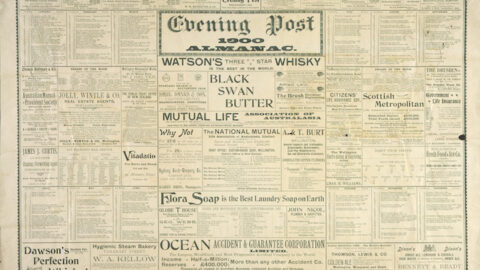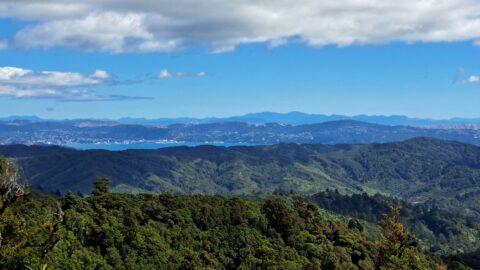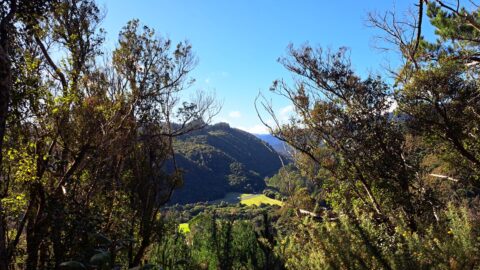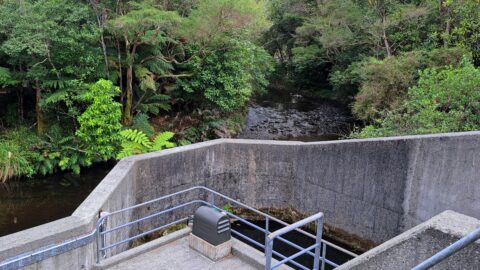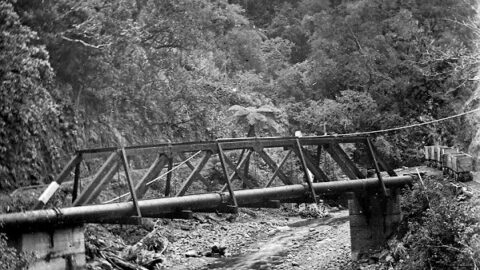William Frank Oakes (W.F. Oakes) was a notable contractor in the late 19th century, recognised for his contributions to significant infrastructure projects in the Wellington region, particularly in Wainuiomata.
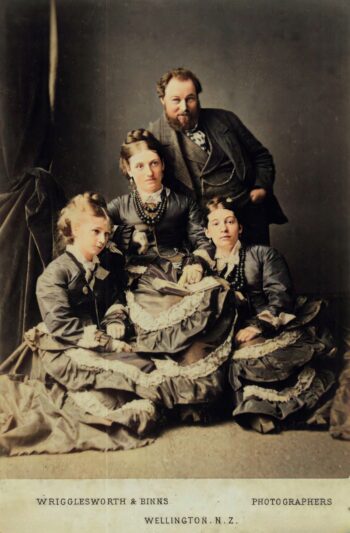 William Frank Oakes (1840–1889) married Sarah Ann Watford Mantell in September 1867 in Wellington. Sarah had emigrated from England to New Zealand in 1866 aboard the ship Wild Duck, arriving in Wellington on 8 December 1866. William was born on 20 December 1840 and passed away on 28 November 1889 at the age of 48 in Lismore, New South Wales. (Source).
William Frank Oakes (1840–1889) married Sarah Ann Watford Mantell in September 1867 in Wellington. Sarah had emigrated from England to New Zealand in 1866 aboard the ship Wild Duck, arriving in Wellington on 8 December 1866. William was born on 20 December 1840 and passed away on 28 November 1889 at the age of 48 in Lismore, New South Wales. (Source).
Oakes most significant achievement was the construction of the long tunnel in Wainuiomata between 1880 and 1883. This half-mile tunnel was a critical component of the waterworks system, channelling water from the Wainuiomata Valley to the city of Wellington, addressing the growing population’s need for a reliable water supply. His tender of £1,982 13s 8d was accepted by the Wellington City Council. In July 1881, he advertised for 50 skilled labourers, particularly pick and shovel workers, for work on the Wainuiomata Tunnel, highlighting the scale and urgency of the project. The tunnel was completed in February 1883, after nearly 3 years of continuous labour.
In June 1880, Oakes also successfully tendered for the Wainuiomata water race at a cost of £233 15s and another tender for £7,439 7s 6d in July 1881. Other reports say that the total cost was around £15,000. The dimensions of the water raceway being 96 chains in length, 4ft in width and 2ft 9in from the crown of the arch to the bottom of the invert.
Oakes also successfully tendered for the following: The formation of a track to the dam, which would later facilitate the construction of a tramway once the dam was completed. Additionally, the formation of a track and the laying of pipes up Waiwetu Hill to the mouth of the tunnel, as well as laying pipes across a swamp to the tunnel entrance, covering a distance of 25 chains. As part of the same contract, he also constructed Colemans Tunnel, which was later named after John Coleman, a contractor who brick-lined it.
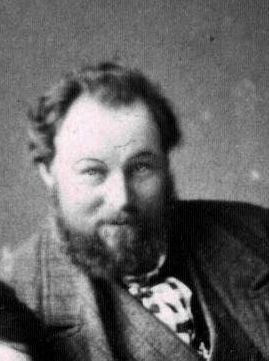 William Frank Oakes and family relocated to Australia which may have been connected with his bankruptcy on 28 September 1877. His son, Walter Frank Oakes, continued his father’s legacy as an engineer, contributing to notable projects in New South Wales and South Africa.
William Frank Oakes and family relocated to Australia which may have been connected with his bankruptcy on 28 September 1877. His son, Walter Frank Oakes, continued his father’s legacy as an engineer, contributing to notable projects in New South Wales and South Africa.

